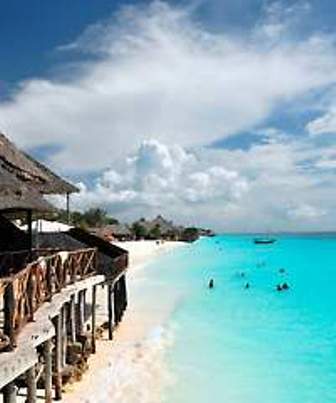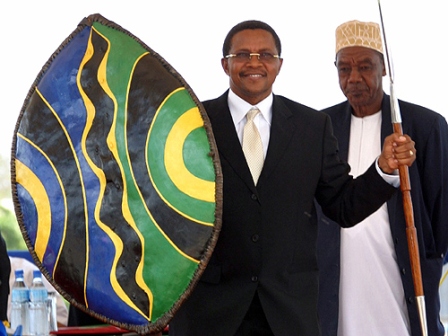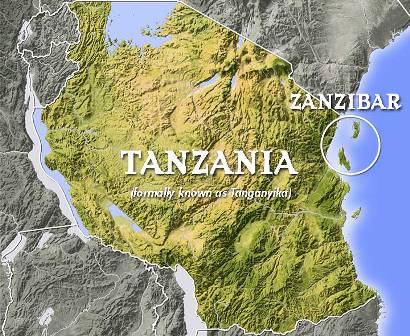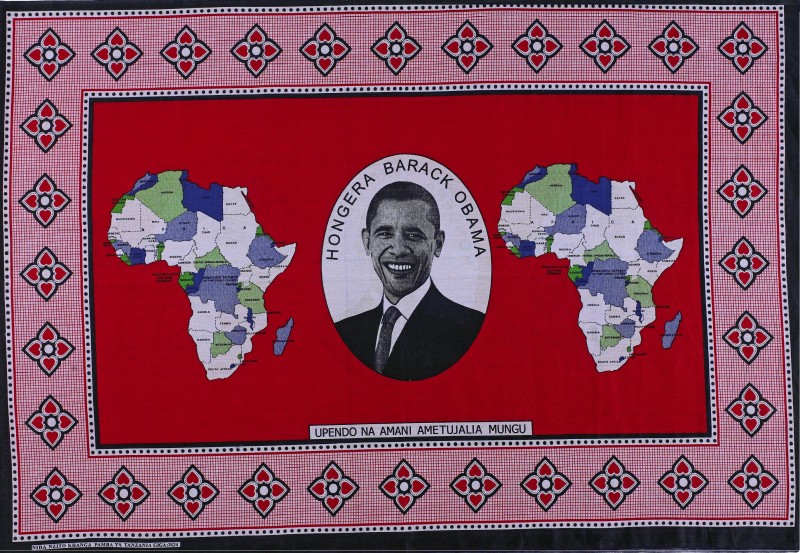By Apolinari Tairo
Published April 26, 2014
 As United Republic of Tanzania marks 50 years on April 26, 2014, a cloud of uncertainty hangs over the future of the union that came into being on April 26, 1964 when Tanganyika and Zanzibar merged to become a sovereign state.
As United Republic of Tanzania marks 50 years on April 26, 2014, a cloud of uncertainty hangs over the future of the union that came into being on April 26, 1964 when Tanganyika and Zanzibar merged to become a sovereign state.
Zanzibat, famous for sea sports, dolphin watching, and unbeatable pristine sand beaches, is in a dilemma whether to remain in the union.
It is felt that Tanzania’s Hollywood and Ukrainian parliament- style Constitutional Assembly has frustrated many Tanzanians, mostly Zanzibaris who want a fair deal in the union.
RELATED: ICC Holds Pre-trial Hearing for First Kenya Case on Post December 2007 Election Violence
Zanzibar Minister and a member of the Assembly, Khamis Bakary, says the Union is dominated with shortfalls which had denied Zanzibar its fundamental rights as a country, among them, an international integration and fair shairing of resources.
Despite the ongoing political stalemate, tourists are still flocking to Zanzibar’s warm tropical beaches to enjoy the African sun or watching dolphins at Kizimkazi deep waters, while taking time in scuba diving, attractions which had attracted renowned world personalities, including Bill Gates.

Zanzibar tourism is made up mostly of pristine sand beaches, deep water diving, unique and rich multi-racial cultures, and historical sites, all of which attract leading singers and artists to compose songs in praise of this beautiful island, among them, the famous South African singer, Sipho Mabhuse, who sang in his song, “Oh Zanzibar!â€
RELATED: How a Cultural Industry is Coming Out of the Indefinable Mau Mau
Despite its riches, Zanzibar is poorer when compared to mainland tourist towns of Arusha and Moshi in the northern circuit.
There have been cases of child abuse in the island’s beaches with human rights activists raising an alarm over child exploitation by a section of tourist companies, mostly foreign.
Activists blame the Zanzibar government for its failure to invest in education for the island’s children, causing many of them to fail to attend schools in favour of commercial sex business and illicit drug deals.
 They raised an alarm over escalating child-labour in the island’s tourism, mostly those taking tourists to dolphin safaris. Members of the island’s parliament have blasted their government over moral decay among the youth, as the tourism industry thrives, while the level of poverty increases.
They raised an alarm over escalating child-labour in the island’s tourism, mostly those taking tourists to dolphin safaris. Members of the island’s parliament have blasted their government over moral decay among the youth, as the tourism industry thrives, while the level of poverty increases.
Tourism is currently the leading source of revenue to Zanzibar’s economy, injecting 27% to the isle’s gross domestic product (GDP), while generating 72% of the isle’s foreign currency, but most Zanzibaris have yet to benefit from it, the average income being less than US$1 per day.
RELATED: Sexual Violence in Democratic Republic of Congo Exacerbates National AIDS Epidemic
Critics of the Union see no reason why Zanzibar is poorer than the rest of Indian Ocean islands despite its rich ocean resources, taking into account that most island states in the world are richer than theirhinterland counterparts.
Perhaps this could be what is driving Zanzibar to want to stand alone and compete with Seychelles, Mauritius, La Reunion, and Maldives – the other island state destinations.
There are circulating reports that Zanzibar people want to see their island become an autonomous republic and run alone as a free port similar to Dubai in United Arab Emirates (UAE), Singapore, Taiwan, or Hong Kong.
[showmyads]
On April 26, 1964, former Tanzanian President, Julius Nyerere, and the first President of Zanzibar, Sheikh Abeid Karume, united Tanganyika and Zanzibar to form the present United Republic of Tanzania.
Zanzibar has a population approaching one million while mainland Tanzania has 45 million people.
Separatist factions and a section of media outlets in Tanzania refer to the union of Tanganyika and Zanzibar as a “shotgun wedding,†while advocating a separate “Republic of Zanzibar†outside the United Republic of Tanzania.
 RELATED: Defeat Terror with Trade and Travel, not Travel Advisories
RELATED: Defeat Terror with Trade and Travel, not Travel Advisories
Muslim clerics were recently quoted protesting the powers of the President of Tanzania over the people of Zanzibar, unfair distribution of wealth between the two sides of the Union, poverty among Zanzibar people, and rights over oil control and foreign policy.
Zanzibar had launched an aggressive tourism market blitz, targeting high-class tourists, competing with other Indian Ocean island destinations of Seychelles, Mauritius, La Reunion, and Maldives.
Anti-union critics see no reason to have the island be marketed in Europe, America, and other global tourist markets as part of Tanzania instead of going alone. The slogan “Visit Tanzania: The Land of Kilimanjaro, Zanzibar, and the Serengeti†had not benefited the island’s tourism so far, they say.
Campaigns on the matter have been spearheaded by the Islamic awakening activists. The ruling communist manifestoed CCM party wants Zanzibar to remain part of Tanzania, while the liberal opposition CUF party stands for greater autonomy, looking for an independent state of Zanzibar.
Zanzibar island is influenced by African, Arabic, European, and Indian cultures. The question remains whether this tourist paradise is going to survive from the ongoing tense political tension.
RELATED: Kenya’s Culture of Dishonesty to Blame for Post-Election Violence
An eTN article
[showmyads]





